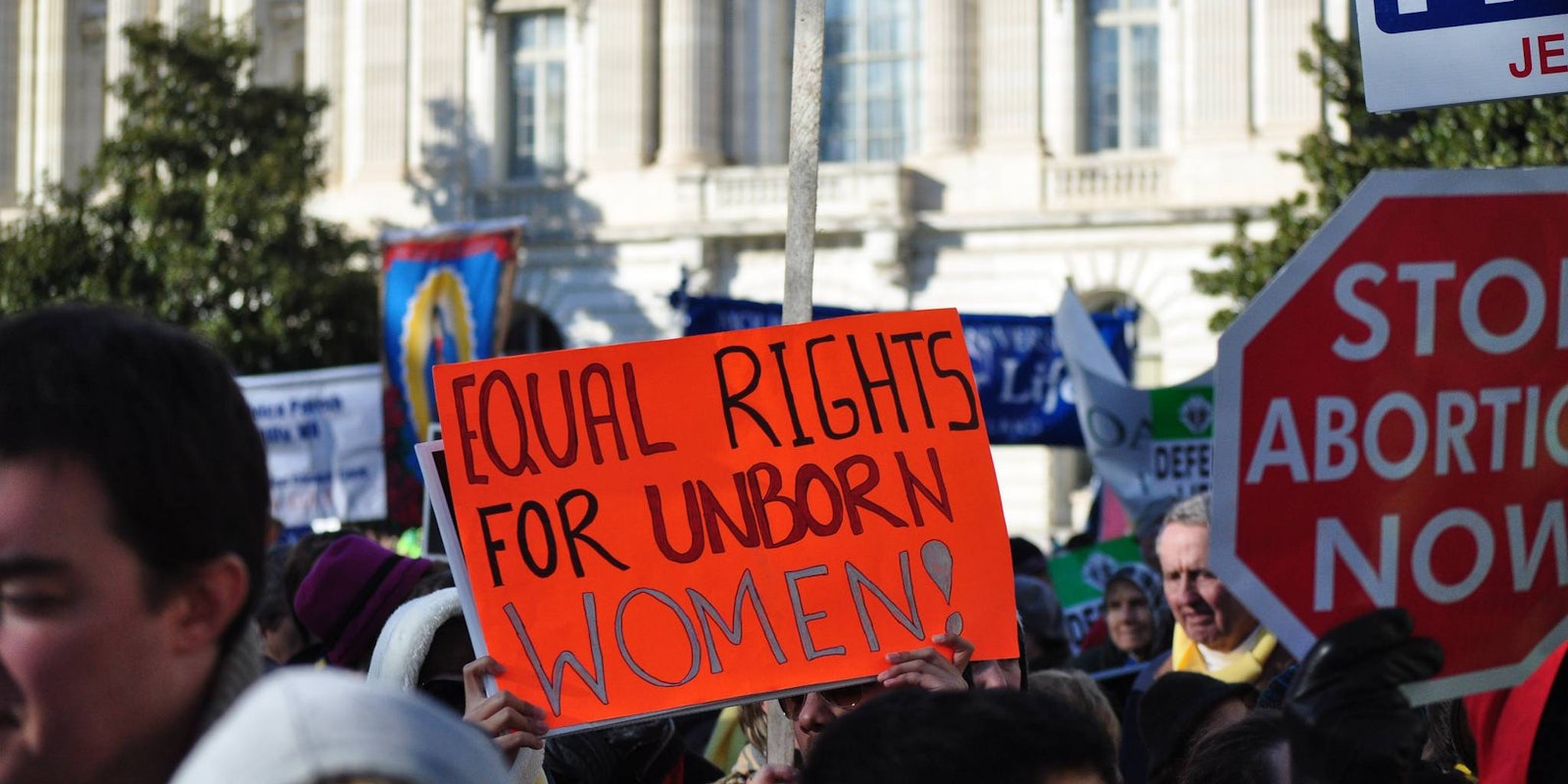This Friday, a different sort of march will be descending on Washington D.C. The 44th annual March for Life, an anti-abortion rally and protest, will feature speakers like Kellyanne Conway and Cardinal Timothy Dolan.
The March for Life has been taking place every year since 1973 and is held near the anniversary of the passage of Roe v. Wade. “The peaceful demonstration that has followed on this somber anniversary every year since 1973 is a witness to the truth concerning the greatest human rights violation of our time, legalized abortion on demand,” march organizers say of Roe v. Wade.
In 2013, the march reportedly drew 650,000 participants, around the same number as this year’s Women’s March on Washington. On the Facebook page for this year’s event, 5,000 have said they are attending.
The March for Life defines life as beginning at conception and equates abortion with murder. It also puts the safety of the fetus over that of the woman carrying it. “Although a pregnant mother and/or her preborn child may die, there is no justification in the law of God or man for the intentional killing of even one innocent born or preborn human in existence at fertilization,” it writes on its site. “NO EXCEPTION! NO COMPROMISE!”
Arguments about when life begins aside, the “pro-life” movement has been subject to criticism regarding the emphasis anti-abortionists put on fetuses above all else, even the mother, with many saying that their concern for life ends once the fetus is born. “Pro-Fetus works because a large swathe of the ‘pro-life’ movement are the same people who support cutting funding to programs like WIC, food stamps, and other programs which generally help mothers and children,” wrote Brandon Cloud for the Huffington Post. “If they were really concerned with ‘life,’ and not just the fetus, then they would aggressively commit themselves to make sure children have enough food to eat, a proper education, and a place to live.”
Recently, the Women’s March on Washington faced controversy when it briefly allowed anti-abortion feminist groups to be part of the march, even though its official platform was pro-choice. The question over whether a woman can be a feminist and anti-abortion is a sticky one, putting personal beliefs against public policy. Many argue that, while it’s fine to be personally against abortion, it’s anti-feminist to deny other women that choice.
The marchers emphasize peaceful protest and advise participants not to engage with counter-protesters. Though, since a lot of the support looks to come from white women, it may be nonviolent as a result of police reluctance to attack white women.
Less than a week into the Trump administration, the president and the Republican-led Congress have already taken steps to drastically cut access to abortion. In an executive order, Donald Trump reinstated the global gag rule, which cuts federal funding to international NGOs that even mention abortion as an option. And yesterday, the House passed H.B. 7, which prohibits federal funds from being used for abortion except in the case of rape or incest (effectively making the Hyde Amendment permanent), and requires that “multi-state qualified health plans offered on health insurance exchanges do not cover abortions ineligible for federal funding.”
Laws like these disproportionately affect the poor and could put women’s lives in danger, and they are laws the march supports.
